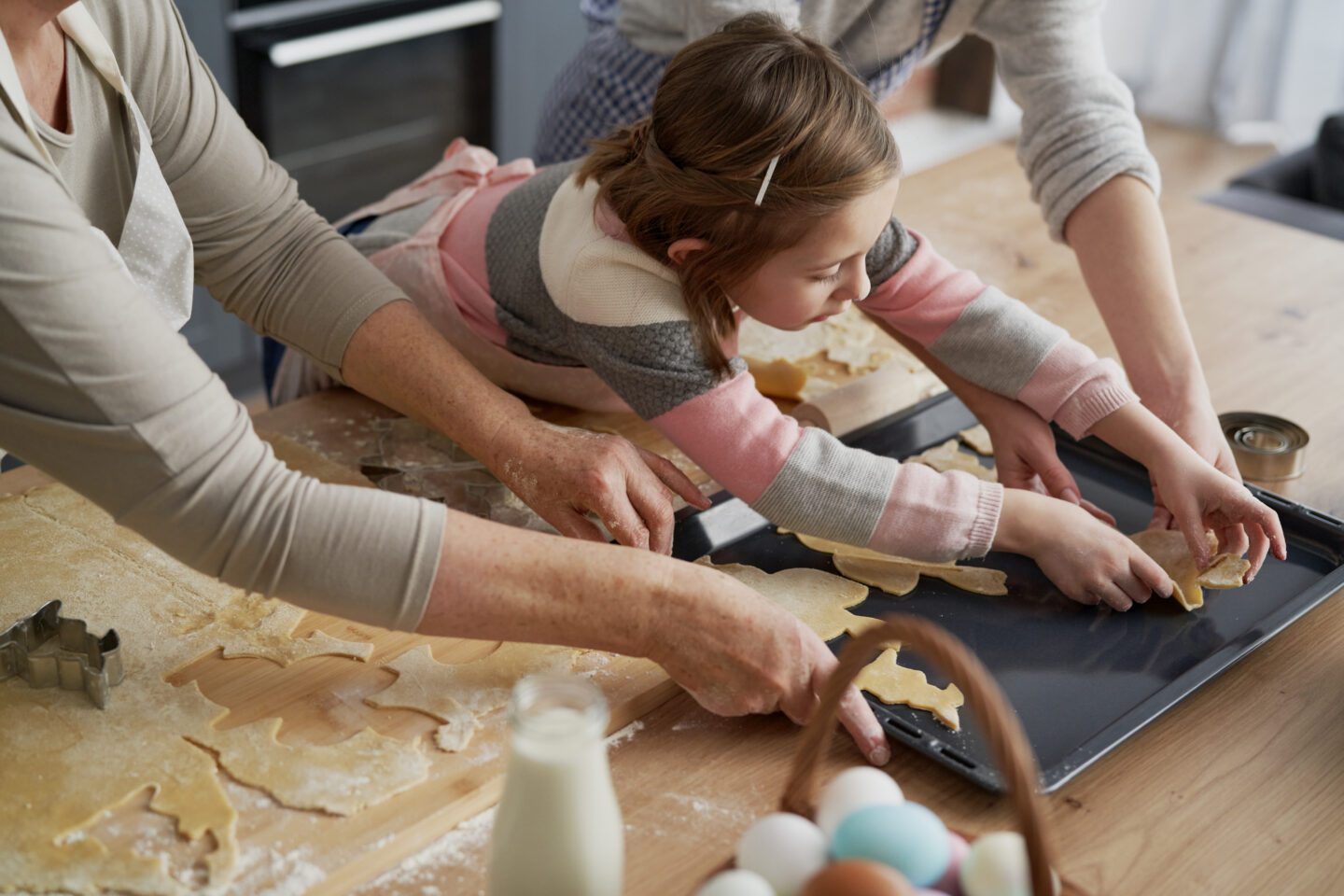
Holiday Activities
We're here to help you and your child navigate the admissions process from start to finish.
Easter Activities: Three Great Ways to Entertain Your Family
Easter offers a wonderful chance to spend time together as a family, but it’s not uncommon to worry about how to keep your children occupied over the break.
Keep your child busy, and give them a break from 11 plus prep, with these fun Easter activities.
If you’re panicking about a long car journey or the prospect of rainy weather over the break, never fear. We are here with some fun Easter activities for the whole family to enjoy – and we’ve even slipped a bit of subtle educational stuff in there, too!
Easter Activities: Bake Together

Baking might seem like a complicated task, but children as young as nine can follow a recipe with minimal help. Additionally, it’s a great, fun way to improve both reading and mathematical skills (weighing and measuring, for instance). We love this simple Easter biscuit recipe from BBC Good Food, which will also allow your child to show off their artistic side when it comes to icing the baked goods. Alternatively, how about trying these ‘eggstremely’ easy (sorry, couldn’t resist) yet utterly delicious Mars bar nests?
Easter Activities: Jazz Up Journeys
Going on a car journey? We’ve got some Easter activities to make the trip fly by.
For many of us, Easter involves travelling – whether that’s to stay with family or because you’re heading off on a four-day minibreak – and children can find long journeys difficult. However, there are plenty of ways to make the most of this time, turning a trip into a fun affair rather than an exercise in patience!
- Relish the route. Planning a road trip is a perfect opportunity for your child to show off what they’ve learned in geography at school. Look at where you’re going on a map and, if possible, ask your child to help you plan the route. When you’re actually in the car, point out interesting road signs or markings and chat about what these signify.
- Mathematical mayhem. Pick cars at random and try and add up the numbers on the plates as quickly as possible. Turn it into a fun competition by pitting members of the family against each other to see who can finish first.
- Name game. A great test of alphabetical and reasoning skills, the name game is simple (but always a winner): someone says a name – John, for instance – and the next person has to think of a name that begins with the last letter of the previous answer – in this case, ‘N’. You can make it harder by changing the category from people to countries, capital cities, food items, etc.
- Prizes. You can make these games even more enticing by offering prizes for the winners. Small chocolate eggs – as per the Easter theme – might be appropriate. You could also offer the winner ten minutes of time on the iPad playing a favourite game or watching a show, or the opportunity to choose whatever they want to listen to on the car stereo (listening to a chapter of their favourite audio book or switching to their favourite radio station, for instance).
Easter Activities: Indoor Games
If the weather takes a turn for the worst this Easter, there are a range of things you can do to keep your family entertained (whilst stretching their brains at the same time)!
- Structured screen time. There are plenty of free games that can be played on an iPhone or tablet which will keep your child amused whilst developing core skills. Planarity and Word Warp are two of our favourites; the first is a free game that improves logical thinking, and the second is word-game app similar to Boggle.
- Put on a play or sing at the top of your lungs. Many children and teenagers alike are budding performers, so why not give them free rein? Encourage them to write a story and perform it for the rest of the family, or hunt down a karaoke app and take it in turns to have a good sing-song. The benefits of involvement in the arts and singing have been widely documented; furthermore – and most importantly – these kinds of activities make us feel good!
- Play cards. An oldie but a goodie, there are so many different games you can play with a deck of cards – plus you’ll be improving your child’s maths, problem-solving, and communication skills, and giving them a tactile experience (all at the same time).
If you’re still stuck for ideas, take a read of our list of unusual Easter traditions from around the world, or check out our top picks for Easter reading.
We have more ideas on how to make the most of your holidays with fun activities for all the family. Ask your tutor for more ideas too!
Get in Touch
Find out how Mentor can help you support you and your child as you approach the 11+. Get in touch today.
-
Give us a call
020 8883 2519 -
Email us
hello@mentoreducation.co.uk -
Our social media


